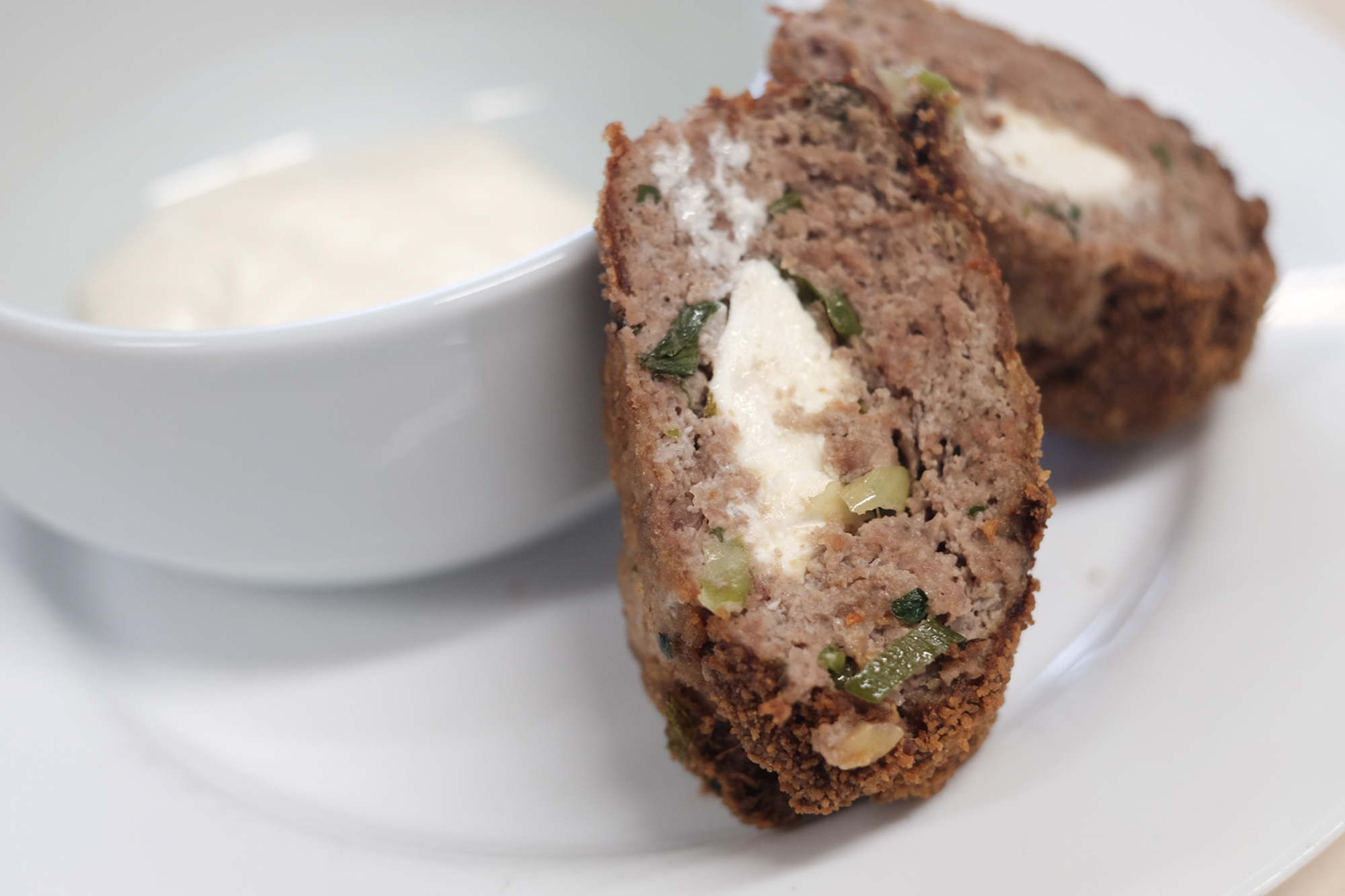

Nosh.bio brings Koji-based hybrid beef mince to Berlin foodservice
Berlin-based startup Nosh.bio will debut its Koji-based hybrid beef mince in a week-long menu at Speisemanufaktur Adlershof, beginning 15 September 2025. The launch marks the first time a German startup has demonstrated the use of Koji protein in hybrid minced meat, introducing both consumers and industry stakeholders to the ingredient’s culinary and commercial potential.
The event will see the restaurant serve a different dish each day, from burgers and meatballs to lasagna, all made with Nosh.bio’s hybrid mince. Diners will be able to experience the product first-hand, while a press-only tasting on 17 September 2025 will give journalists the opportunity to sample the ingredient and engage directly with the Nosh.bio team.
“We are pleased to collaborate with Speisemanufaktur Adlershof on the first public launch of our Hybrid Mince,” said Tim Fronzek, Nosh.bio CEO & Co-founder. “This event gives us the opportunity to demonstrate how our ingredient performs in staple dishes and to gather valuable feedback from press and end consumers. Insights from this showcase complement our broader work with food manufacturers and industry partners as we scale sustainable protein solutions – giving meat eaters the taste and texture they expect, while helping reduce reliance on animal protein.”

Beyond demonstrating versatility in familiar formats, the collaboration is designed to generate direct impressions from both consumers and attending media. Feedback on taste, texture, and overall performance will help validate the ingredient’s suitability for larger-scale adoption by foodservice operators and manufacturers.
By presenting the product in popular dishes, Nosh.bio hopes to show how hybrid meat can provide a realistic path for flexitarians and omnivores seeking to reduce meat consumption without abandoning it entirely.
Hybrid products are increasingly being recognized as a bridge between conventional meat and plant-based alternatives. They combine animal protein with alternative sources to deliver comparable flavor and mouthfeel at a reduced environmental and health cost.
Nosh.bio has designed its hybrid mince to outperform conventional beef in several areas. According to the company, the product is not only cheaper than beef but also delivers comparable flavor and mouthfeel with improved juiciness. Nutritionally, it contains 30% less cholesterol, higher levels of dietary fiber, and high protein content.
Sustainability credentials are central to Nosh.bio’s pitch. A Life Cycle Analysis of its protein found it uses 99% less land and water than beef protein and produces 90% fewer carbon emissions. These figures align with broader industry targets: in Europe, nine major supermarket chains have pledged to achieve a 50:50 ratio between plant and animal proteins by 2030. With surveys consistently showing that many consumers are reluctant to adopt fully plant-based diets, blended products such as Nosh.bio’s hybrid mince are being positioned as a practical solution to bridge the gap.
The company’s protein is derived from non-GMO Koji fungi, cultivated through fermentation. Using only water and natural inputs, the process converts the mycelium into a highly versatile protein suitable for a wide range of applications beyond meat, including seafood, dairy, bakery, and confectionery products.
The fermentation process can utilize agricultural side-streams as feedstock, creating a sustainable supply chain while keeping costs competitive. Importantly, the process can be carried out in existing fermentation facilities. One such site is a former brewery in Dresden, which Nosh.bio has adapted to enable rapid scaling without the expense of building new infrastructure.
The Berlin showcase signals a shift in Nosh.bio’s strategy from development to real-world application. While the company has been working closely with manufacturers and food industry partners, bringing the hybrid mince directly to consumers is intended to validate its appeal beyond the laboratory and pilot kitchen.

Hybrid mince has been a focal point for Nosh.bio since its founding, and the company believes it represents a key stepping stone in the transition toward more sustainable protein consumption. For flexitarian consumers, the hybrid approach offers a familiar eating experience while reducing the reliance on animal protein. For industry stakeholders, it presents a cost-effective and scalable way to meet sustainability targets while maintaining consumer satisfaction.
Fronzek emphasized the importance of showcasing the product in a real foodservice environment. “This event allows us to show how our ingredient performs in dishes that people already know and love,” he said. “It is about meeting consumers where they are and demonstrating that sustainable protein solutions can deliver on taste, nutrition, and affordability.”
Nosh.bio’s hybrid beef mince launch at Speisemanufaktur Adlershof is more than a restaurant collaboration. It represents an effort to demonstrate how Koji protein can integrate into established food systems, offering a viable pathway for reducing the environmental impact of meat consumption.
By showcasing its versatility in a week of everyday dishes, the startup aims to prove that fungi-derived protein can resonate with both consumers and the food industry at large. With pressing climate targets and shifting dietary patterns driving interest in blended products, the company’s Koji-based mince may prove a timely addition to the evolving protein landscape.
If you have any questions or would like to get in touch with us, please email info@futureofproteinproduction.com


-p-800.jpg)



